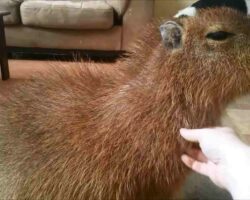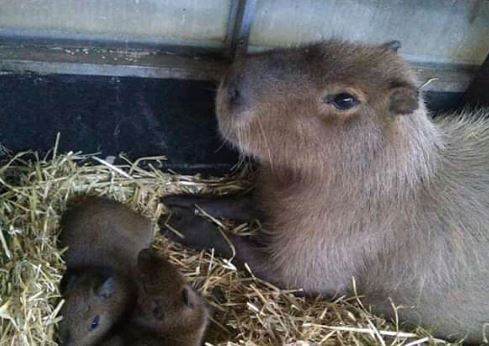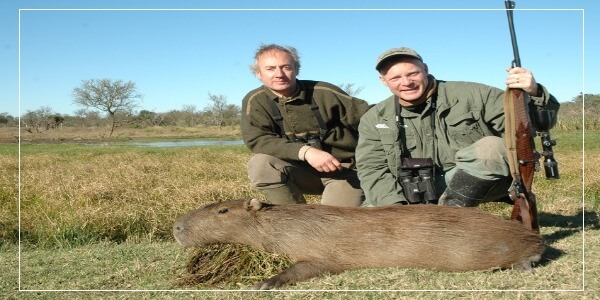Capybaras are increasingly popular as unique pets in many households. With their friendly demeanor and semi-aquatic nature, these rodents have captured animal enthusiasts’ interest. However, when it comes to owning one as a pet, you must know that each state has its own laws and regulations concerning ownership.
In a state like Utah, where laws and regulations govern exotic animal ownership, you must know the laws and regulations if you want to own one. These laws include obtaining the necessary permits, adhering to specific enclosure and care requirements, and being aware of any restrictions or limitations imposed by local authorities.
First, you must know that pet capybaras are legally allowed in Utah. However, the ownership of such animals is subject to specific laws and regulations. These laws were implemented to ensure the welfare of both the animals and the public. You must know these laws before owning a capybara in Utah.
In this city, the Division of Wildlife Resources (DWR) oversees exotic animal ownership and possession. Capybaras fall under exotic wildlife, and you need a permit to keep them as pets. The type of permit you need varies depending on the circumstances, such as whether you are keeping the capybara for personal use or for exhibition purposes.
Additionally, Utah has specific laws or restrictions on capybaras. here are some of the laws and restrictions below
- Exotic Animal Ownership: Utah has regulations governing exotic animal ownership, including capybaras. The state classifies capybaras as exotic animals and may require permits or licenses for ownership.
- Permit and Licensing Requirements: If you want to own capybaras as pets in Utah, you will need permits or licenses from the appropriate regulatory agencies. These permits typically involve an application process, which includes providing information about the capybara’s enclosure, care, and safety measures.
- Animal Welfare and Care: Utah, like many other states, has laws and regulations to ensure animals’ welfare and care. You must adhere to these laws, which include provisions regarding the size and conditions of enclosures, access to water, veterinary care, and the overall well-being of capybaras.
Permit and License Requirements
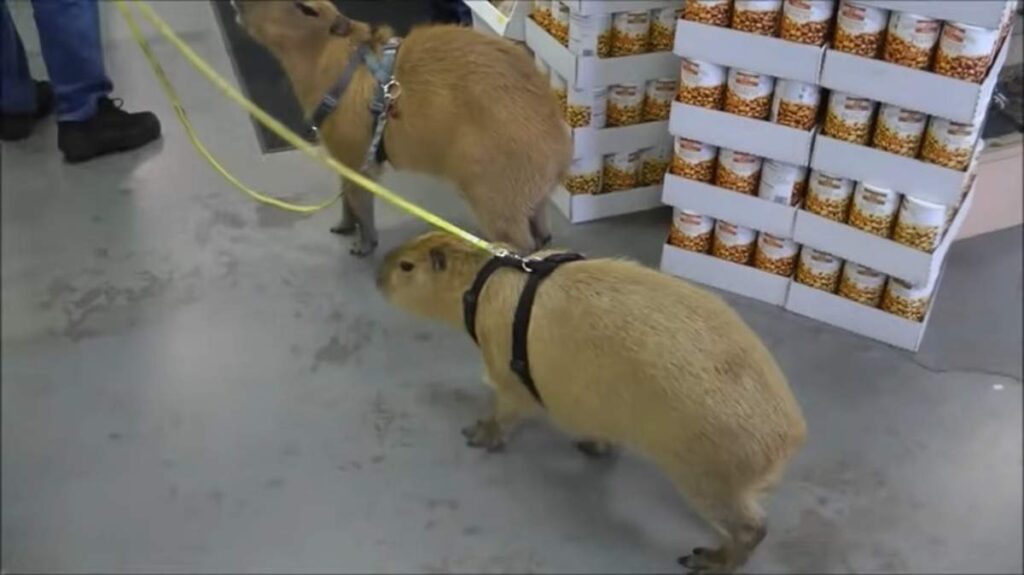
To own a capybara as a pet in Utah, you must obtain the appropriate permits and licenses. The specific permits and paperwork required vary depending on the circumstances and the intended purpose of owning a capybara. Below are the steps or requirements.
- Contact the DWR: Reach out to the Division of Wildlife Resources to inquire about the specific permits and licenses needed to own a capybara. They will provide you with the necessary information and guide you through the application process.
- Application: Fill out the required application form for exotic pet ownership. The application often requires details such as your personal information, contact details, and specific information about the Capybara. This includes its intended purpose and housing arrangements. The application also requires approval from a veterinarian and may require a fee to be paid. Additionally, local laws and regulations need to be adhered to when applying for exotic pet ownership.
- Documentation: Gather any supporting documents you need, such as proof of suitable enclosure, veterinary references, and compliance with zoning or neighborhood restrictions.
- Application Review: Submit the completed application and supporting documents to the appropriate department within the DWR. The application will be reviewed to ensure compliance with regulations and the suitability of the owner and environment for housing a capybara.
- Fees: You will pay associated fees for permit application, processing, and inspection. Fees vary depending on factors.
- Inspections: As part of the application process, the DWR will conduct inspections of the capybara’s enclosure and living conditions to ensure they meet the required standards for welfare and safety.
Why Do Pelicans Eat Capybaras?
How Do Capybaras Defend Themselves?
Zoning Restrictions and Considerations

In addition to obtaining the necessary permits and licenses, you must know if there are any zoning restrictions to owning a capybara as a pet in Utah. Zoning regulations vary from municipality to municipality, and local towns often restrict exotic animal ownership, including capybaras.
To determine if there are any zoning restrictions on Capybara ownership in your area, contact your local municipality or county office. They can provide you with information on any specific ordinances or regulations regarding exotic pet ownership, including capybaras. When contacting local authorities or homeowner associations, you should ask about the following:
- Prohibited Species: Some municipalities may have a list of prohibited species including capybaras or other exotic animals. This means that owning a capybara may be strictly forbidden within the jurisdiction.
- Zoning Classifications: Zoning regulations categorize properties into different zones, such as residential, commercial, or agricultural. Each zone may have different rules and restrictions regarding exotic pet ownership.
- Special Permits or Exceptions: Zoning regulations may sometimes allow special permits or exceptions to own exotic pets, including capybaras. These permits have specific requirements, such as minimum property size, enclosure specifications, or proximity to neighboring properties. It is essential to inquire about the availability and criteria for such permits if they exist.
Finding out all of this information before owning a capybara is pretty critical. Here are some reasons why.
- Compliance with Laws and Regulations: Each municipality may have specific laws and regulations regarding exotic pet ownership, including capybaras. By checking with local authorities, you can ensure you know any restrictions, permits, or licenses required to own a Capybara legally.
- Zoning Restrictions: Zoning regulations dictate how properties can be used and what activities are permitted in certain areas. You can determine whether owning a capybara is allowed in your area by checking with local municipalities.
- Neighbor Relations: Owning a capybara may impact your neighbors and the community. By checking with local municipalities and homeowner associations, you can ensure that you respect the rules and guidelines in place. This will ensure a harmonious environment for everyone.
Can You Own a Capybara in Pennsylvania?
Albino Capybaras: Everything To Know
Housing and Care Requirements
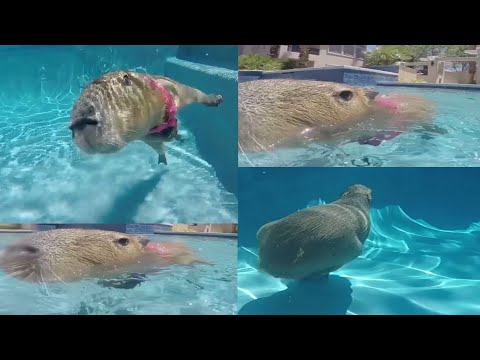
Housing and care for capybaras are crucial to their well-being and happiness. Here are some key considerations:
- Enclosure Size: Capybaras require ample space to roam and explore. The enclosure should be large enough to accommodate their size and allow for natural behaviors such as running and swimming. A minimum recommended enclosure size for a single capybara is around 200 square feet, but larger spaces are always better.
- Temperature and Humidity: Capybaras thrive in warm and humid environments. The enclosure should be kept in a comfortable temperature range of 75-85°F with a humidity level of around 50-70%.
- Access to Water: Capybaras require access to a pool or large water feature where they can swim and cool off. The pool should be spacious and deep enough to facilitate their natural swimming behaviors. Regular cleaning and filtration of the water are also necessary to maintain proper hygiene.
In addition, providing water and a suitable environment is very critical for your capybara. Here are some reasons.
- Enhances Physical Health: Water is essential for capybaras to stay hydrated and maintain their overall physical health. It helps them cool down in hot weather, aids digestion, and supports their bodily systems. Regular access to water can prevent dehydration and health issues.
- Exercise and enrichment: Swimming is a form of exercise for capybaras and helps them stay active and maintain muscle tone. It provides them with opportunities for physical activity and mental stimulation. A suitable environment with access to water encourages capybaras to engage in natural behaviors, which contributes to their overall well-being.
- Social Interaction: Water environments offer capybaras opportunities for interpersonal interaction with others. They are social animals that thrive in their own company. Swimming together, grooming, and playing in the water help foster social bonds and satisfy their psychological needs.
Veterinary Care for Capybaras
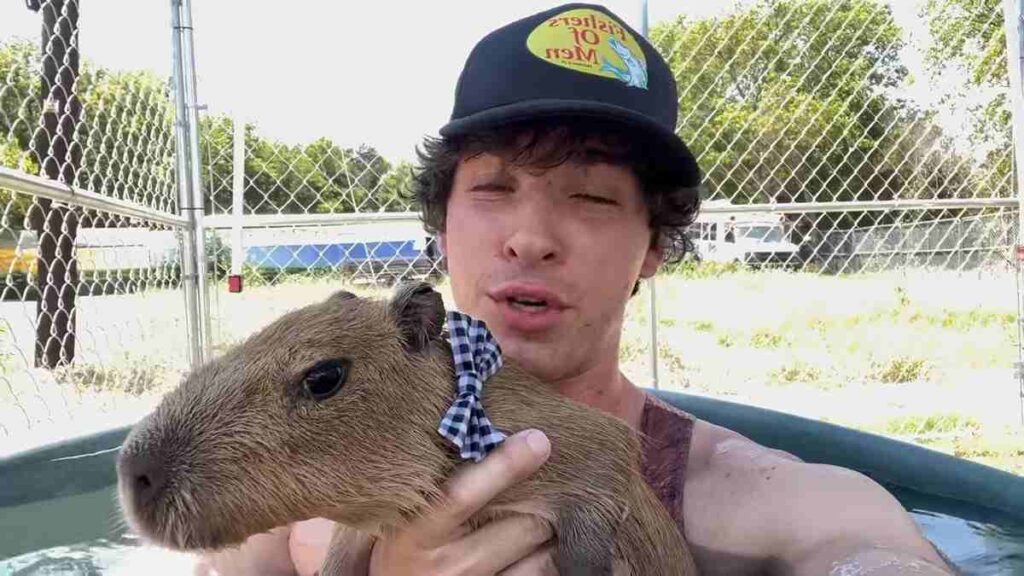
When owning capybaras or any exotic animals, finding a veterinarian with experience treating them is crucial for their health and well-being. Here are some key points to consider.
- Specialized Veterinarians: Capybaras have unique physiological and behavioral characteristics, so you must seek out veterinarians who have experience and expertise in treating exotic animals or specifically capybaras. These professionals know the specific needs, health concerns, and medical treatments relevant to capybaras.
- Exotic Animal Clinics: Look for veterinary clinics or hospitals that specialize in exotic animal care. These facilities are more likely to have veterinarians knowledgeable about capybaras and other non-traditional pets. They will have the necessary equipment and resources to provide appropriate care.
- Referrals and Recommendations: Seek recommendations from other Capybara owners, exotic pet groups, or local wildlife organizations. They can suggest veterinarians who treat capybaras or other exotic animals.
Capybara care, like any exotic pet, is more expensive than domesticated animals. The cost of veterinary services varies depending on the location, the complexity of the medical issue, and the expertise of the veterinarian. You must consider the potential cost of regular check-ups, vaccinations, diagnostics, and emergency care when budgeting for a capybara as a pet.
How To Get a Pet Capybara Uk [Step By Step]
How Long Do Capybaras Live? – [Answered]
Capybara Meat And Its Culinary Uses – [Every You Should Know]
Conclusion
Although you can own a pet capybara in this city, you must know that there are several laws and limitations governing them. These laws include owning a license, providing proper housing, and more. We have discussed all of these laws in this blogpost
We have also discussed the requirements to own a capybara in Utah. Read through the article to get the details you need.

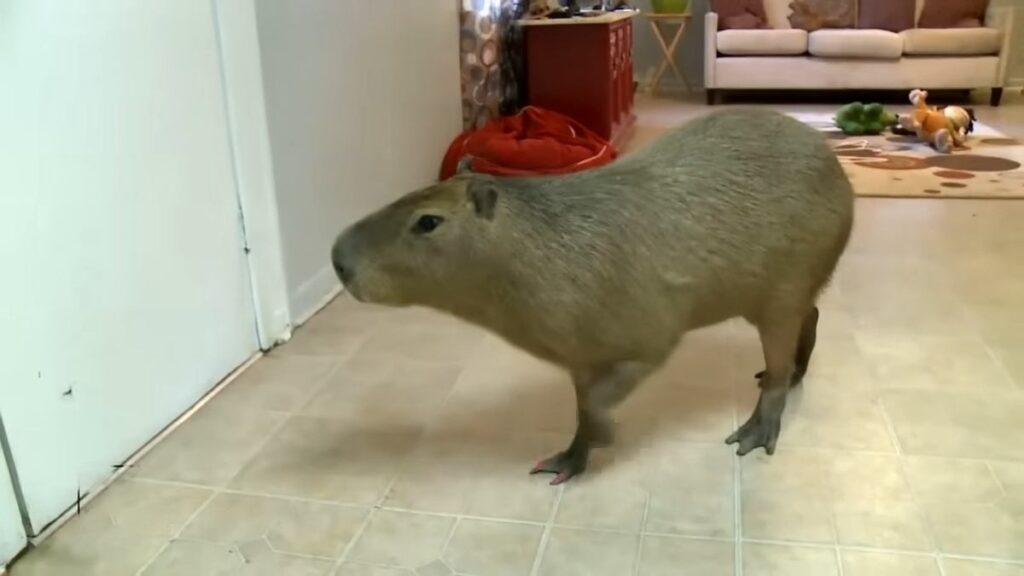
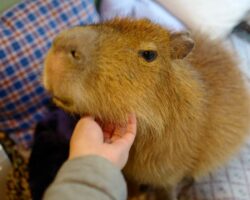
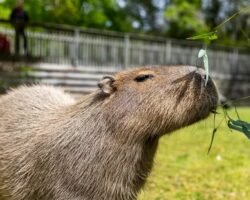
![How Big Should a Capybara Enclosure Be? - [Sizes & Design] How Big Should a Capybara Enclosure Be](https://capybaratips.com/wp-content/uploads/2023/03/Capy-Enclosure-250x200.webp)
![Capybara Meat And Its Culinary Uses - [Every You Should Know] Capybara Meat & Culinary Uses](https://capybaratips.com/wp-content/uploads/2023/03/Capybara-meat-250x200.webp)
![How To Get A Capybara In China [Steps By Steps] China-Capybara](https://capybaratips.com/wp-content/uploads/2023/03/China-Capybara-250x200.webp)
